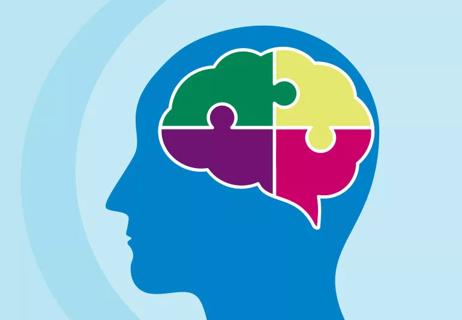Advertisement
Toxic positivity is real and it can be a problem

It never fails. Your house could burn down, your dog could run away, someone could steal your identity — and there will always be that one person who will tell you to cheer up and stay positive.
Advertisement
Cleveland Clinic is a non-profit academic medical center. Advertising on our site helps support our mission. We do not endorse non-Cleveland Clinic products or services. Policy
Doesn’t it make you want to scream?
When you’re going through things, you want to feel what you’re feeling. Why is it so hard for some people to let you do just that? Behavioral therapist, Amy Brodsky, LISW-S helps us get to the root of this issue and offers tips for handling #teamgoodvibesonly when you’re having a rough time.
Your super-optimistic friend may think this label is made up.
Sorry.
Brodsky says it’s a very real thing.
“Toxic positivity is absolutely a thing. It comes from a misinterpretation or an exaggeration of a really helpful tactic known as ‘positive reframing.’ ”
While it’s true that we can increase our experience of joy and contentment by reframing our thoughts to see the potential positives of a situation, she says it all becomes toxic when people believe they’re expected to never have negative thoughts or unpleasant emotions.
Advertisement
“It is important to remember, there are no ‘bad emotions’. All emotions are important. They inform us about our needs, safety and our desires,” says Brodsky.
When you’re up against a difficult situation, you’re processing a lot and trying to figure out the best way to navigate through the ordeal. It can be very trying when it seems like a friend, family member or partner doesn’t acknowledge what you’re experiencing. According to Brodsky, it’s normal for us to feel a little agitated when this occurs.
“When we’re feeling sad, worried, scared or angry, we generally need empathy first. When friends or family jump in immediately and want to make someone feel good instantly, it can feel like those emotions and the reasons behind them are being dismissed,” she says.
“While it can be helpful to point out to a loved one other ways to perceive a situation, jumping in too quickly to fix or change that person’s experience can feel dismissive and invalidating. Often, we don’t want or need someone to fix our problems or how we feel — we merely need to be understood and given empathy.”
Some people just have a sunny or Zen-like disposition most of the time. So, how can you tell the difference between natural positivity and toxic positivity? Brodsky says how you feel when you’re around the person in question can be a huge indicator.
“One of the ways you can tell is by how you feel when you’re with them or shortly thereafter. Do you feel uplifted or drained? Do you feel heard, or do you feel misunderstood?”
With supportive positivity, difficult emotions are understood. You should also feel supported and like you’ve been shown a new perspective. “Healthy positivity allows us to acknowledge difficult things. It also allows us to shift our attention to the better things,” Brodsky says.
Advertisement
She adds that with toxic positivity, we’re often blamed for our unhappy feelings and even our stressors.
“People who subscribe to the toxic positivity mindset will often blame your health, your wealth and your life situation on your emotional state. We don’t have the magical power to manifest bad things. Certainly managing our emotions and having a positive outlook can help in all the areas of our lives, but not at the exclusion of our uncomfortable emotions. As humans, we benefit from experiencing the full breadth of our feelings,” she says.
Brodsky says that most of this stems from people not wanting to see someone they care about hurting. It’s in our nature to want to stop the pain right away. So we often resort to showering people with compliments and doing whatever we believe will make them feel better faster.
“We want to fix things and make them alright. However, it can be challenging to realize that the kindest and most supportive thing we can do is to let the person who is struggling feel their feelings. The difficult feelings will pass in time if they are acknowledged.”
Brodsky believes that feeling all the feels is a wonderful and very necessary process. She says suppressing your feelings will only lead to a lot of physical and emotional problems.
“When we suppress our emotions, they tend to come out anyway — only in unintended ways like headaches, stomach pain, grinding our teeth and feeling irritable.”
Also, when you turn down your difficult emotions, it makes it harder to feel the rest of your emotions. Brodsky says to think of your emotions like the volume button on your TV remote. If you turn down your anger and pain, your joy and delight also get turned down.
“Being human means having all of our emotions. It’s also good to remember that our emotions are there for a reason. For example, anger or sadness can tell us what needs are being not being met and propel us to make needed changes.”
If you feel yourself getting annoyed quite often by someone who is fluent in toxic positivity, Brodsky says you have every right to feel that way. However, it doesn’t help to cuss or fuss that person out. Instead, take a calmer approach when addressing the problem.
Brodsky explains.
“It’s okay to feel upset. If we feel someone is invalidating our feelings we can express that to them. It helps to use a gentle approach. Often, an ‘I feel’ statement opens the communication in a non-threatening way.”
She suggests going in this direction.
“Try something along the lines of, ‘I feel upset when you tell me not to feel sad. It feels invalidating to me. What I would prefer is if you would let me express how I feel and understand why I feel that way. Once I know you understand, it will be easier for me to hear your suggestions.’ “
Advertisement
Learn more about our editorial process.
Advertisement

Our collective misremembering of events comes from a surplus of false memories

This alternative brain-body therapy focuses on unlocking pent-up feelings, memories and tension that may be stuck in your brain and body

While walking, be mindful of your body, your mind, your place in the world and all five of your senses as you pave a path forward, one step at a time

Local LGBT centers, online directories, visual cues and gender-affirming care or non-discrimination policies can all be helpful resources and cues

In a world where instant gratification is the norm, you can train yourself to be more comfortable waiting patiently

Look to activities you enjoy — or try a new hobby — to help foster meeting new people

This romantic orientation involves little to no romantic attraction to others and exists on a spectrum

American teens are facing unprecedented rates of depression and suicide, but you can be there to support and help them

Focus on your body’s metabolic set point by eating healthy foods, making exercise a part of your routine and reducing stress

PFAS chemicals may make life easier — but they aren’t always so easy on the human body

While there’s little risk in trying this hair care treatment, there isn’t much science to back up the claims